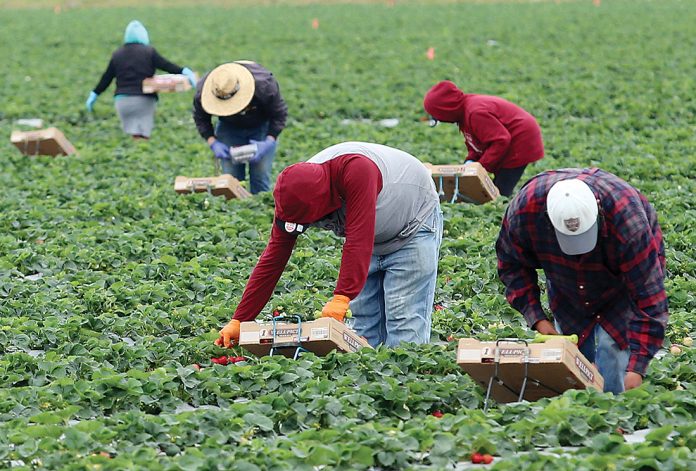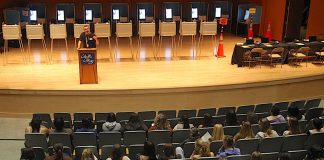SANTA CRUZ COUNTY—More than one million people have so far received a Covid-19 vaccine, according to the Centers for Disease Control.
These “frontline” workers in tier 1a of the state’s protocol include health care workers, first responders and other people who interact directly with patients.
In California, more than 260,000 have received the vaccine.
Tier 1b, which is expected to begin in January, is divided into two phases. The first phase includes people 75 and older, education and childcare workers and people who work in emergency services.
It also includes food and agriculture workers.
But getting the vaccine to those farmworkers could be a difficult task.
The federal government in April identified agriculture laborers as “critical infrastructure workers.”
According to a study of 1,091 farmworkers from Monterey County released on Dec. 2 by the UC Berkeley School of Public Health, agricultural workers have been disproportionately affected by the Covid-19 pandemic, with 13% testing positive from July-November.
The study also shows that farmworkers tested positive three times higher than the rest of the state. This is due in part to overcrowded housing and close working conditions, the report states.
But when UC researchers asked the participants if they planned to get the vaccine, just 52% said they would. Of those who said they would not get it, however, 65% said they feared the side-effects. About 12% cited a mistrust of the government.
Ann Lopez, who runs the Center for Farmworker Families, says those statistics don’t tell the whole story.
Many people who work in the agricultural industry, she says, don’t even know about the vaccine. And those that do know about it, don’t expect to get it anytime soon due to a cynicism that comes from being labeled second-class citizens.
“They are always overlooked and neglected on important issues like this,” Lopez said. “They as essential workers should be among the first to get it. But they are so used to being left in the shadows that it hasn’t entered their minds.”
The pandemic came alongside the CZU August Lightning Complex fires, which diminished the harvest and led to many agricultural workers getting one-half to two-thirds of their annual pay, Lopez said.
“This is the worst year I’ve seen in the 25 years I’ve worked in the community,” she said.
Currently, a group of local leaders is working on getting the message to agricultural laborers—and all county residents—that the vaccine will soon be available.
That group, SAVE Lives Santa Cruz, is a program of the Santa Cruz County Health Services Agency. Its goal, among others, is to reach out to develop a plan to address the pandemic.
Erica Padilla-Chavez, CEO of Pajaro Valley Prevention and Student Assistance and member of the South County branch of the SAVE Lives group, says that a media campaign called the Trusted Voices Campaign set to launch early next year will help spread the word.
“It’s a model that other communities with similar populations can use to assure the community has an opportunity to obtain the information they need in a language they understand,” she said.
It is not yet clear how the Covid-19 vaccine will be given out to farmworkers once they are approved to get it. Santa Cruz County spokesman Jason Hoppin says that it will likely be done through pop-up clinics.
The second phase of tier 1b includes people 65 and older with underlying health conditions, in addition to transportation, logistics and critical manufacturing workers. Prisoners and the homeless are also included
Tier 1c is still under discussion. Gov. Gavin Newsom said at a Monday press briefing that it could include people aged 16-64 with underlying health conditions, as well as water and waste management workers. It could also include people who work in defense, energy, chemical and hazardous materials. Those in communications, financial services, government operations and community service sectors could also fall into tier 1c. It is not clear when that phase will begin.









